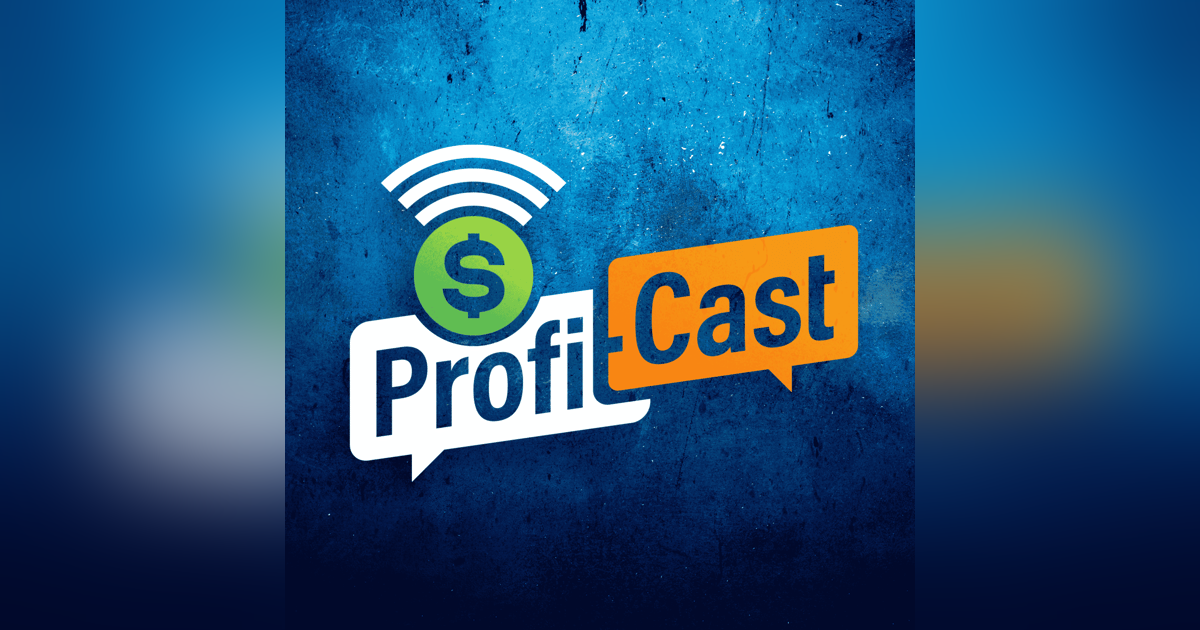78: Essential WordPress Plugins for Your Podcast | John Overall


Holy plugin toy box, Batman! According to WordPress.org, right now there are 42,080 plugins. Sometimes, numbers like that can be intimidating, but I like to think of it similar to online dating. There is a very large pool of individuals who are all...
Holy plugin toy box, Batman! According to WordPress.org, right now there are 42,080 plugins. Sometimes, numbers like that can be intimidating, but I like to think of it similar to online dating. There is a very large pool of individuals who are all registered at a specific service, and yet only a few at any point will be matched to another profile based on the criteria they’ve specified. Just like with a life partner, it’s essential to know what you’re getting with a WordPress plugin… so be picky!
As it turns out, this week’s Profitcast delves into a topic I have a little bit of expertise in! By day I am a application developer, and though I haven’t built any WordPress plugins, I did build a couple modules for DNN and can say from experience that the more you know, the better. Brian chats with John Overall of the WP Plugins A to Z Podcast for a rather unusual, but nonetheless useful, episode. We spend a lot of time talking about production quality, content value and techniques for marketing, but not a whole lot of time considering the other aspects to a podcast.
There will be folks on both sides of the you-have-to-have-a-website argument. Just two weeks ago, Glenn told us that he never visits the website of a podcast he listens to. Why? The podcast is there so he doesn’t have to sit down and stare at a screen. While this is a valid point, there are many reasons to have a web presence, particularly if your podcast topic is something that necessitates a website. But more than that, it simply increases the visibility of your podcast.
With that in mind, it can be very intimidating to look at all the components required to set up a website. Domain, web host, CMS (i.e. WordPress, DNN, Drupal, Joomla), security, users… And then, when WordPress is installed and you’re staring at the default theme with the default text and the default headers, you think, now what?
John provides some excellent advice for weeding through plugins, and I’d like to bring up a few here and provide a little commentary to help encourage your efforts in creating a web presence.
Map It Out
This is great advice from John, and something I always start with when designing a website for a new client. Every website is unique because it has to fulfill a unique need, so don’t jump into a new WordPress site figuring that you’ll orient your content around the plugins you choose.
Start with your content, sketch or outline the structure of your website, and consider how you want to display each aspect of your content. Once you have the needs in mind, then you can start looking for plugins that will help facilitate those needs.
Read the Comments
…with a grain of salt. Smart online shoppers read and interpret reviews of products. How often will a user give a product 1 star because they ordered the wrong size or color? And how often will a user give a product 5 stars because “it arrived on time”? No, we’re looking for the reviews of users who’ve received the product and wore it or used it and have something to say about their expectations and the quality of the product.
Side note: I’ll admit that I sometimes just read Amazon reviews for the heck of it. My favorites are the ones that start off like this: “I bought this for my boyfriend for our 1 year anniversary because I didn’t get him anything on our six month and he got something for me!! He’s so sweet and kind and caring and I wanted to do something nice for him….”
Read the Manual
Every new toy I get, whether it’s my awesome new Cassini telescope or my JBL Flip speaker, I read the manual cover to cover. Sometimes it’s a total waste, but more often than not I learn something very valuable that enables me to do something right the first time. Before downloading a new plugin, read the documentation that the developer has made available. In addition to being aware of the extent of that plugin’s capabilities, you’ll also learn a little bit about the developer and what you can expect from the future of that plugin.
One of the biggest red flags for me as I look into new plugins is whether the developer can even modestly articulate the functionality of their plugin. Popular ones like Jetpack and Akismet seem to have someone devoted to writing their documentation, but some of the more obscure plugins that do more obscure work can be, as I like to say, iffy. While it doesn’t necessarily mean I write them off for not being able to explain what their product does, it may be indicative of the help they will be able to provide to you or even the intuitiveness of the product itself.
Also, these manuals will tell you exactly how to install the plugin, whether it has any dependencies, and which versions of WordPress it is compatible with. All very important things!
John has a ton of great suggestions for us this week! If you’re struggling with plugins, this is definitely one of those episodes that you need to listen to twice, and maybe the second time while you’re sitting at your desk, or at least have a pen and paper handy. A huge thanks to John! Be sure to check out his website and podcast. All the links mentioned in the show can be found below.
Links!























